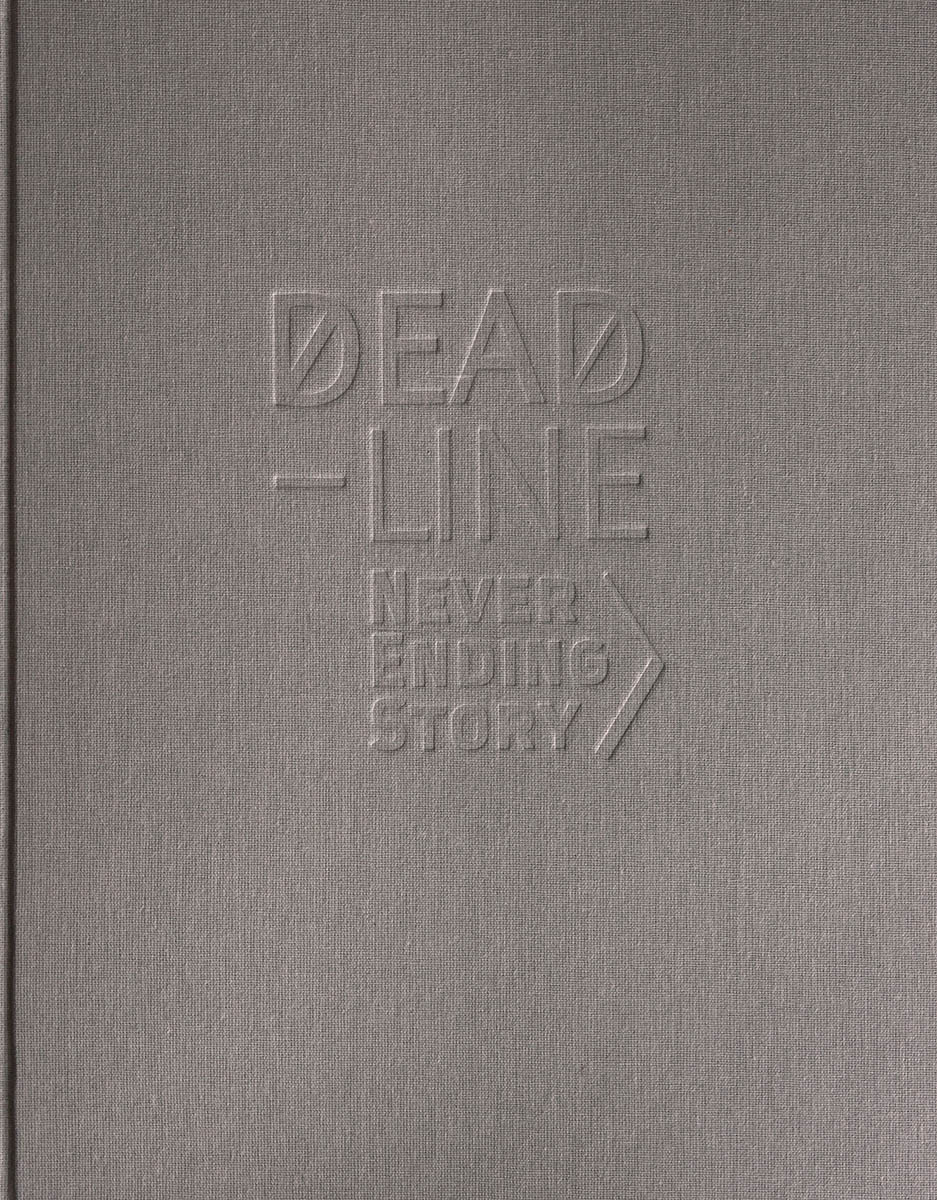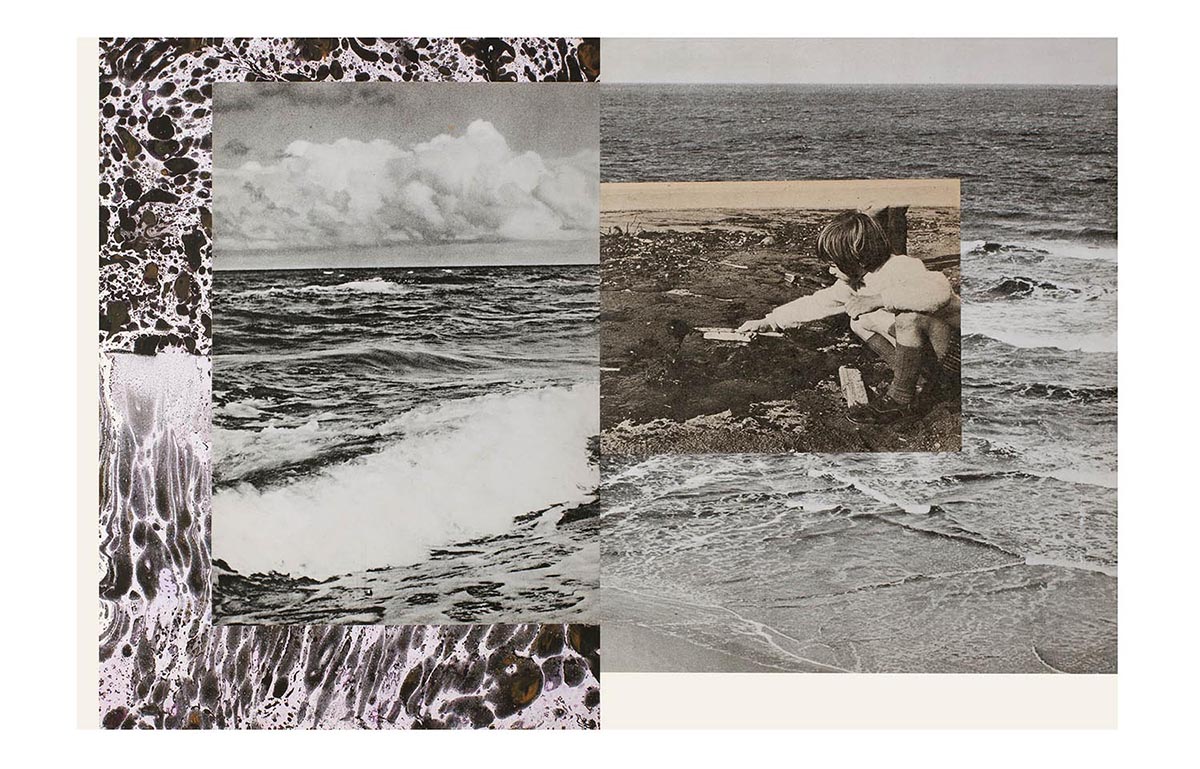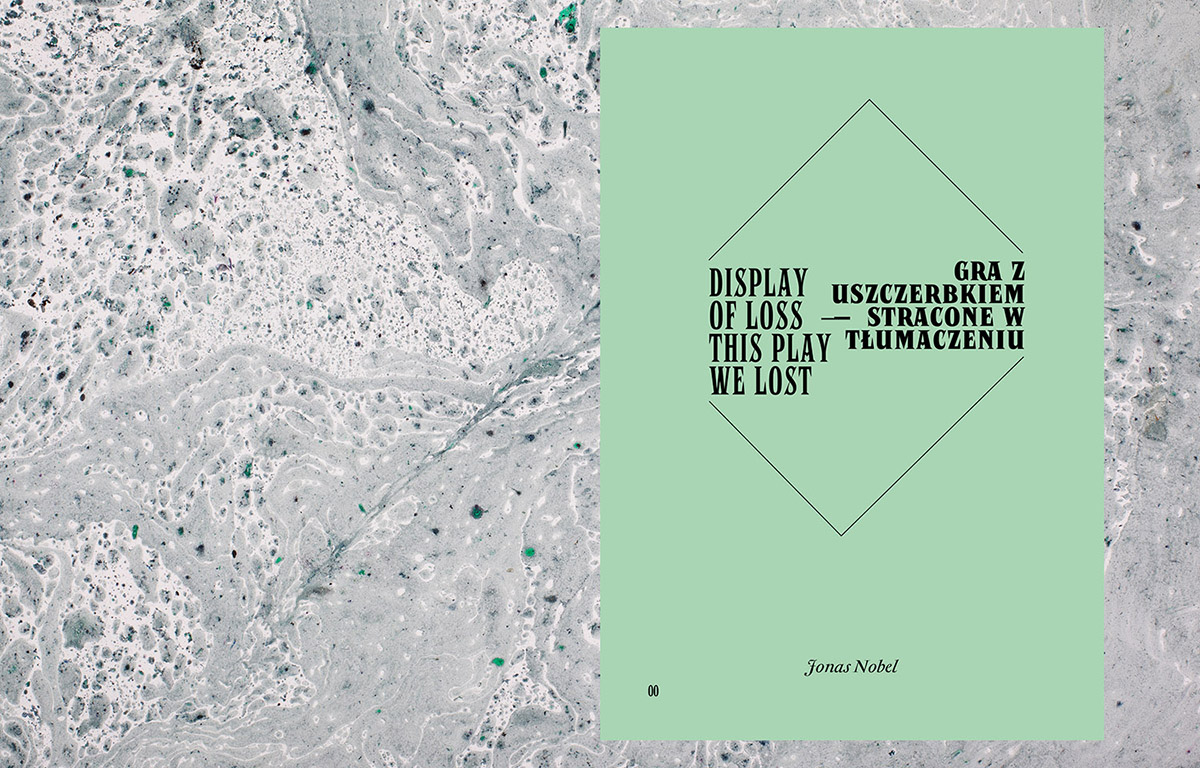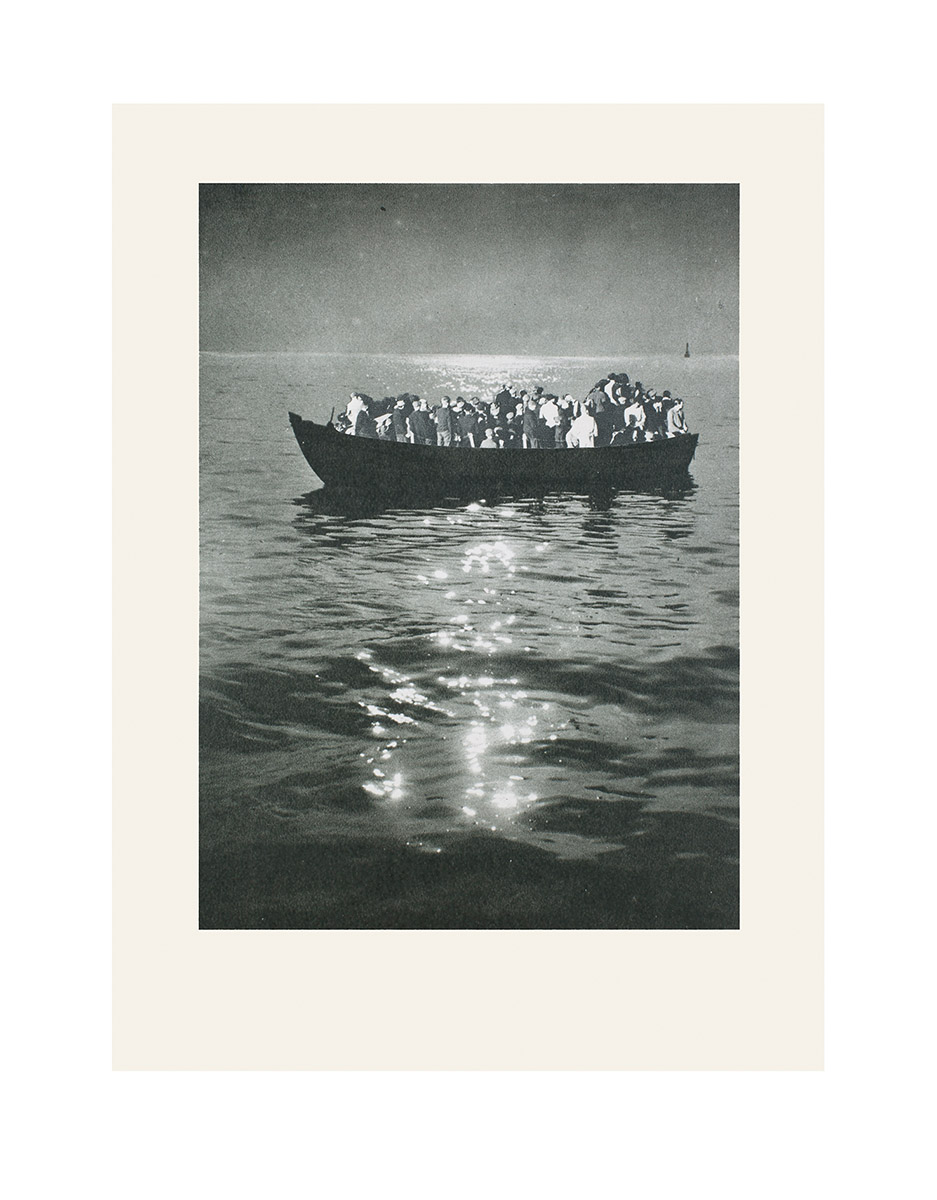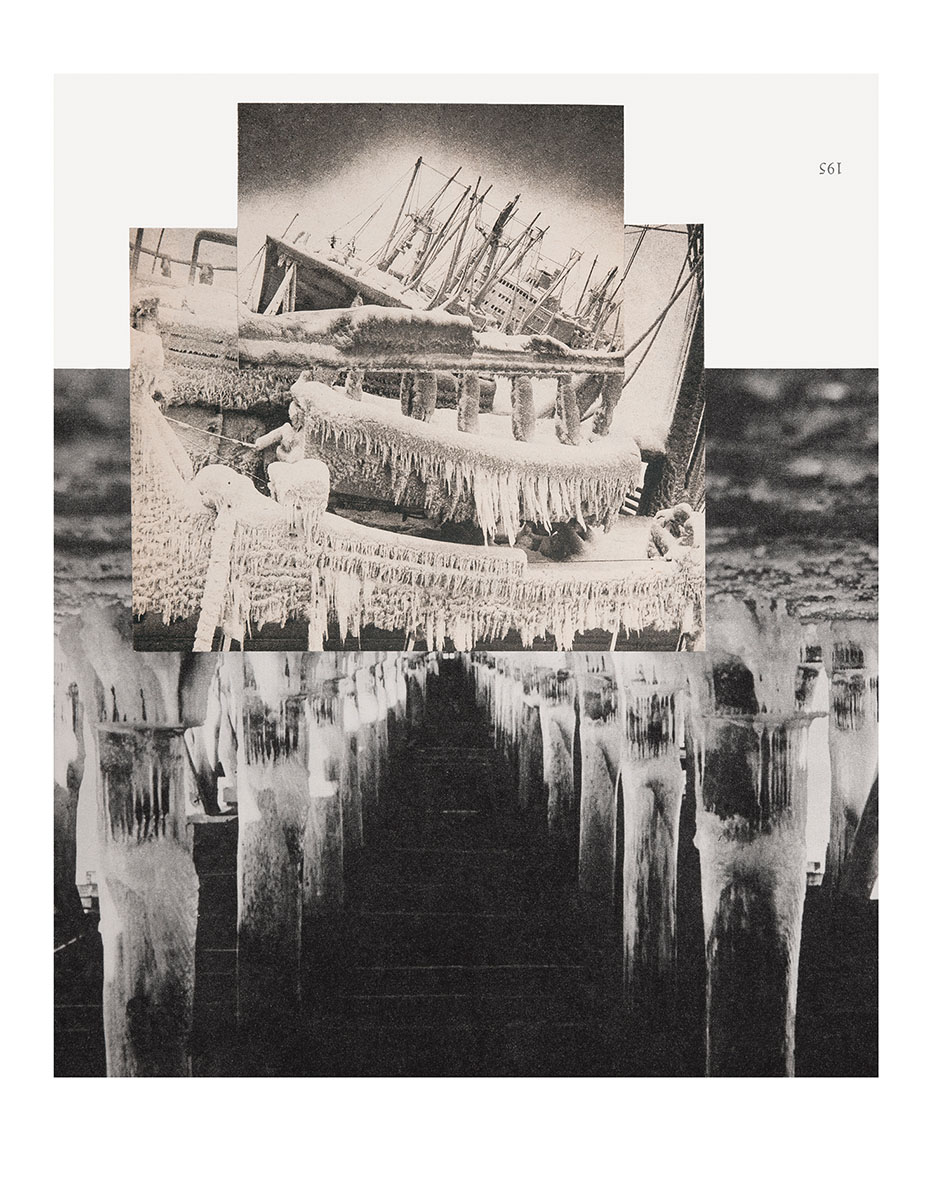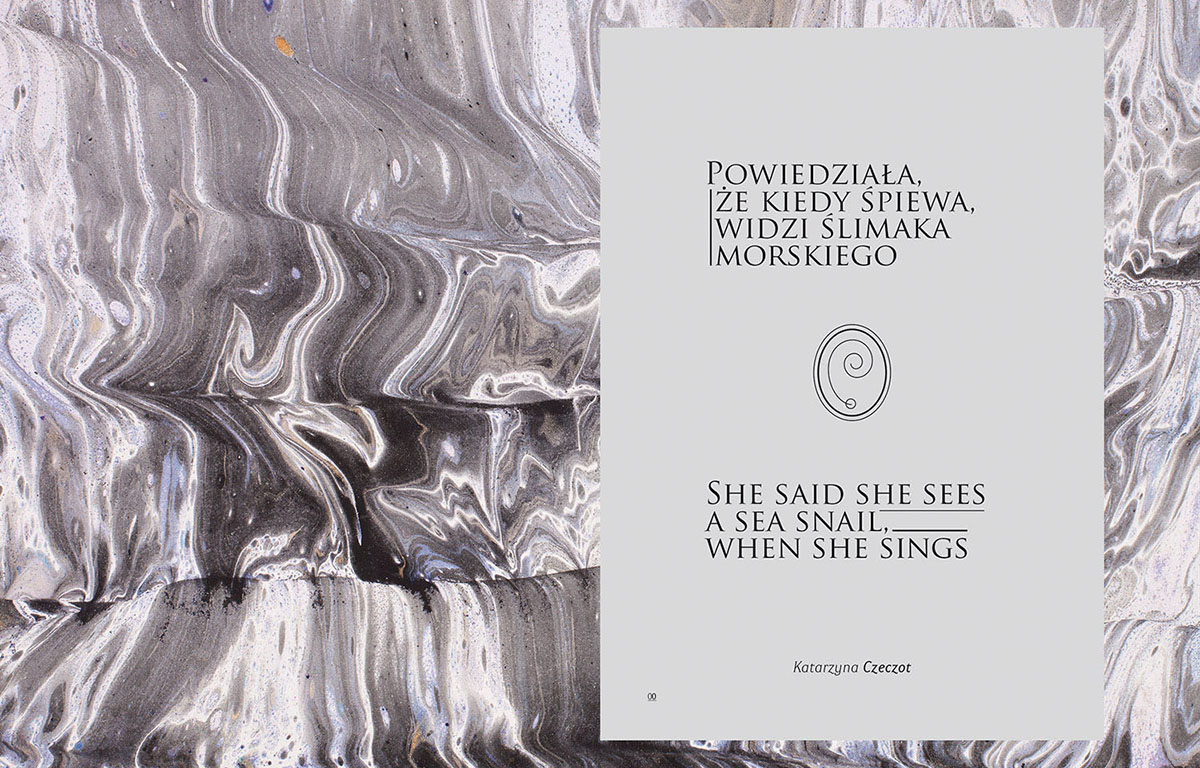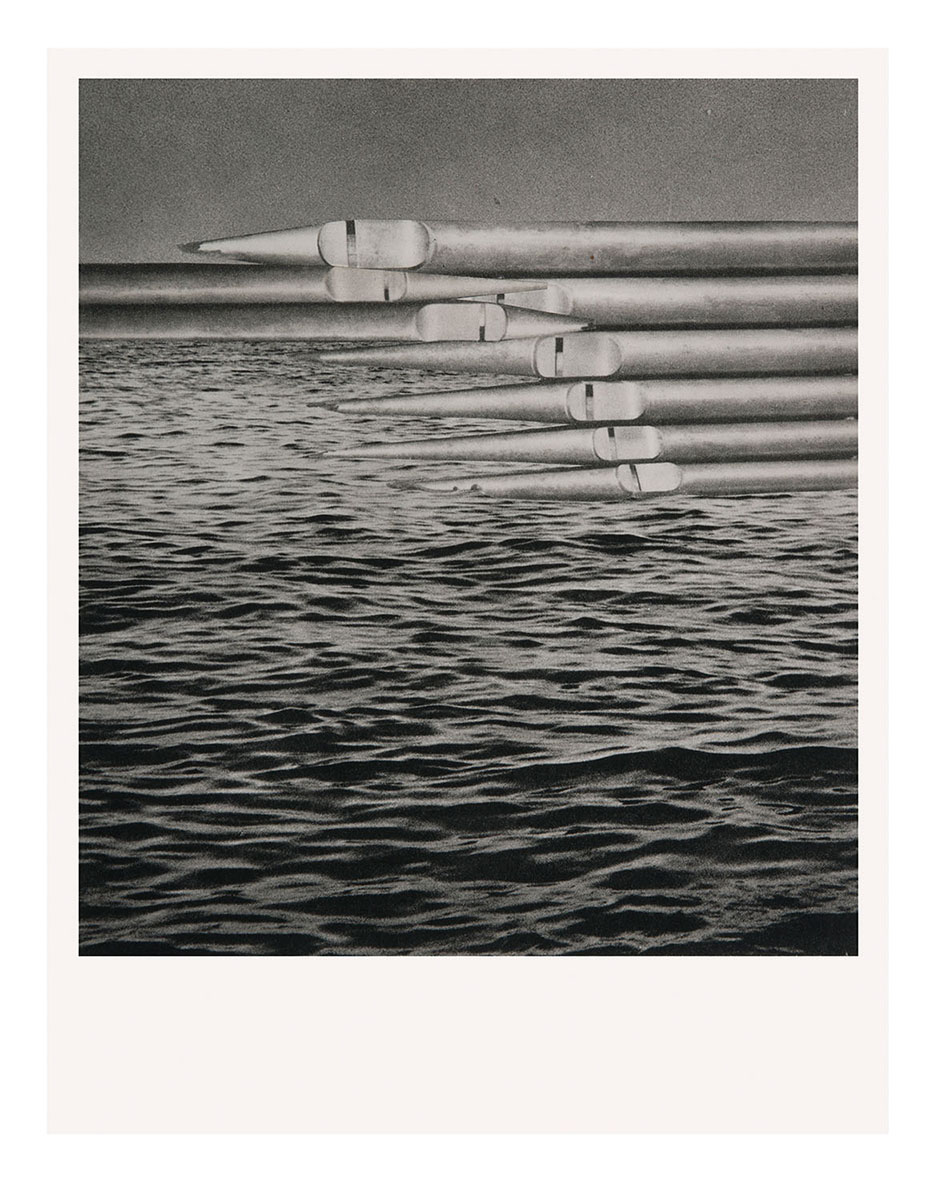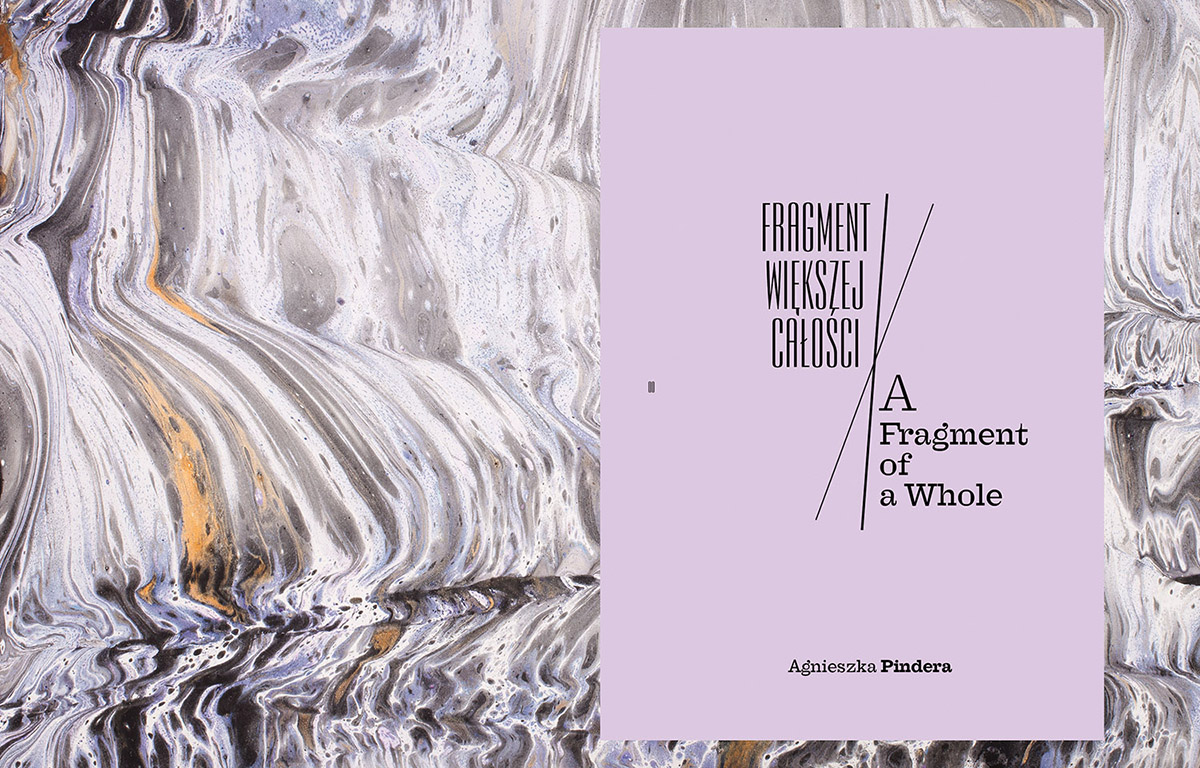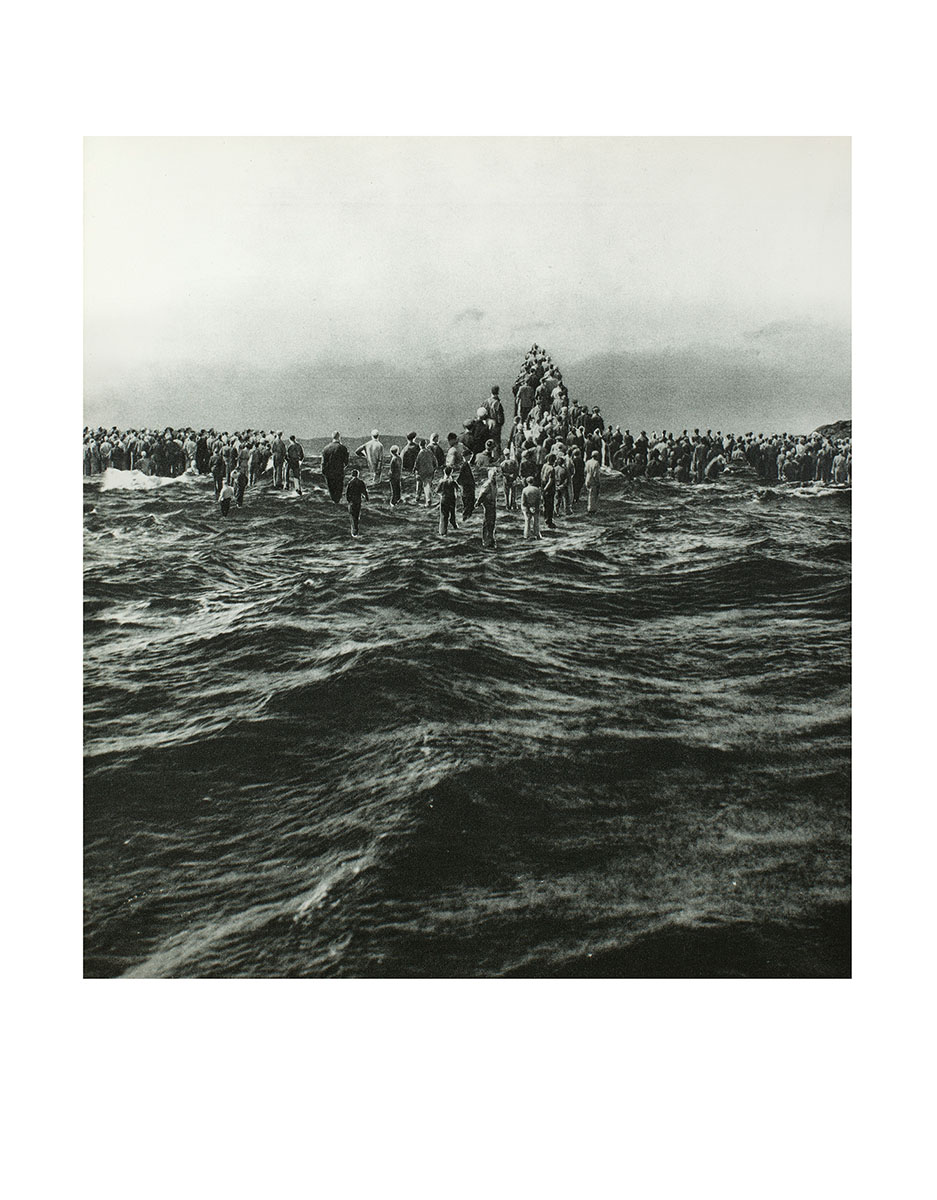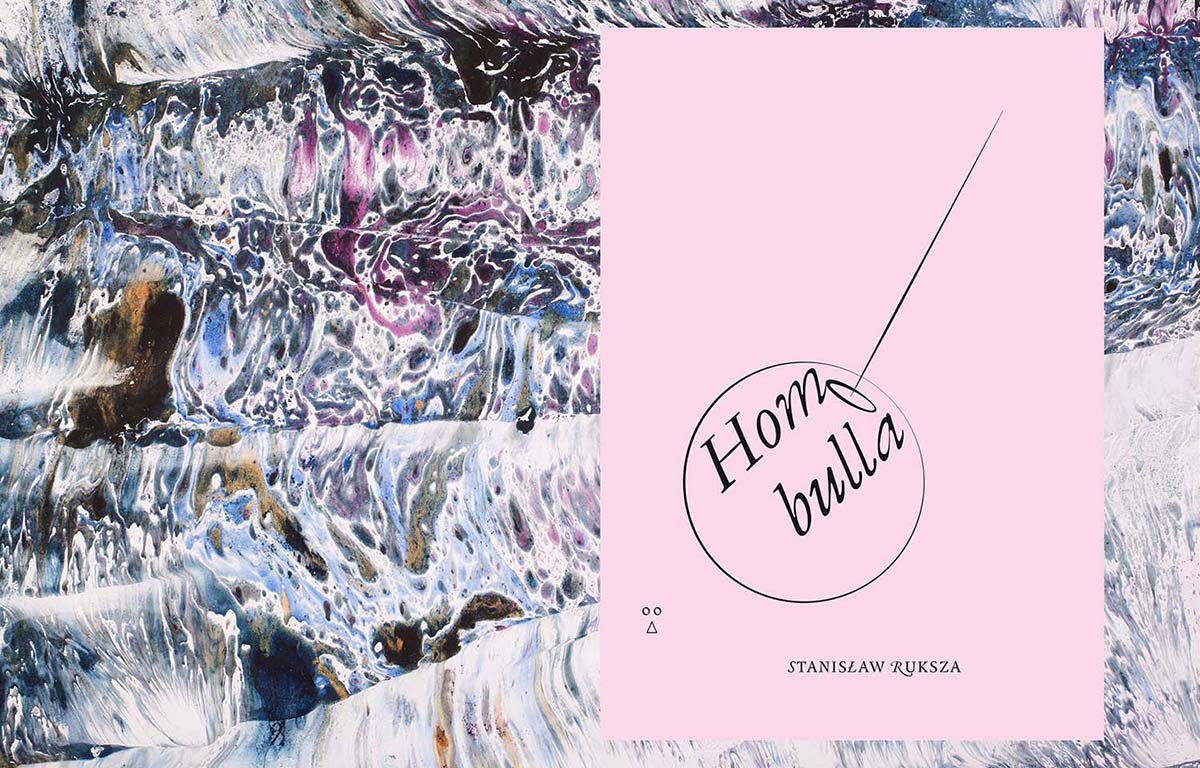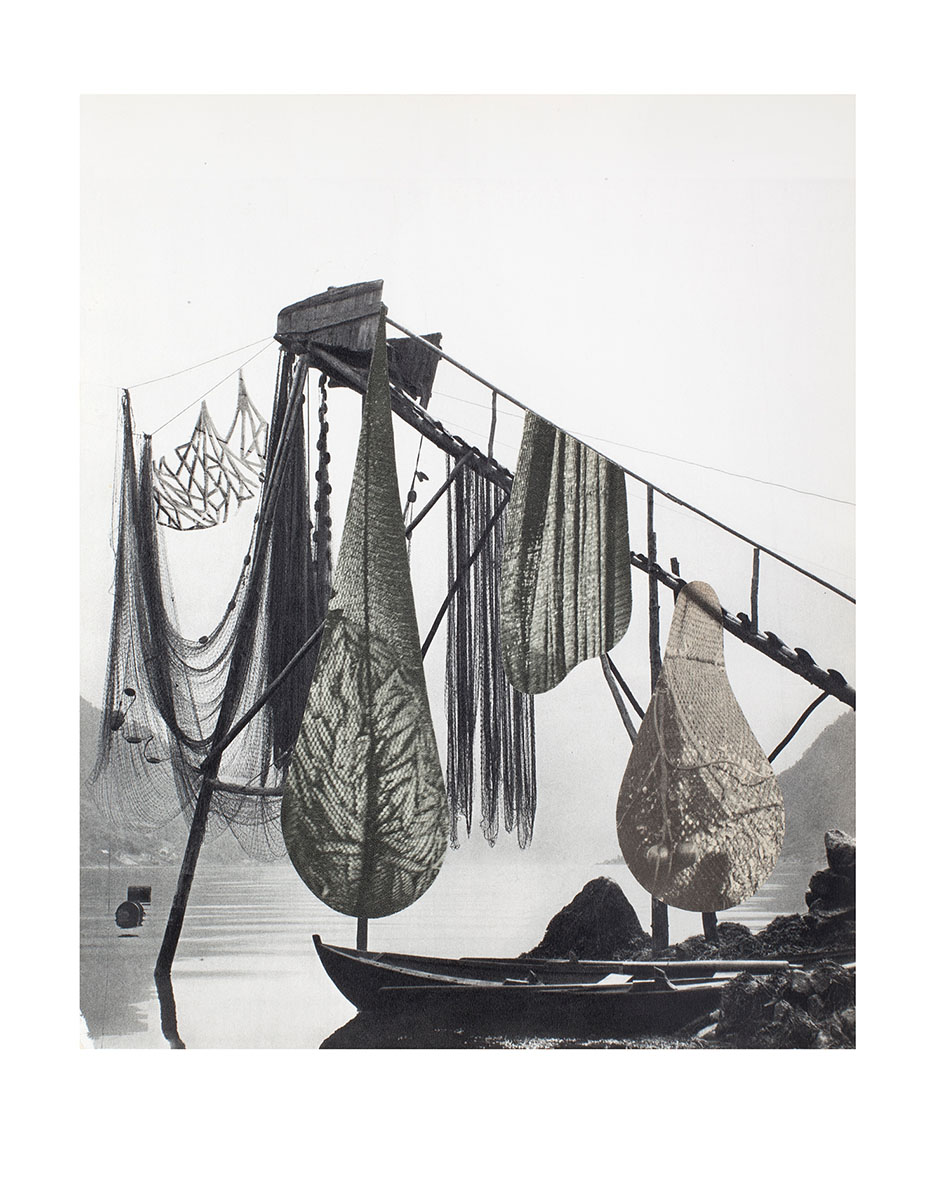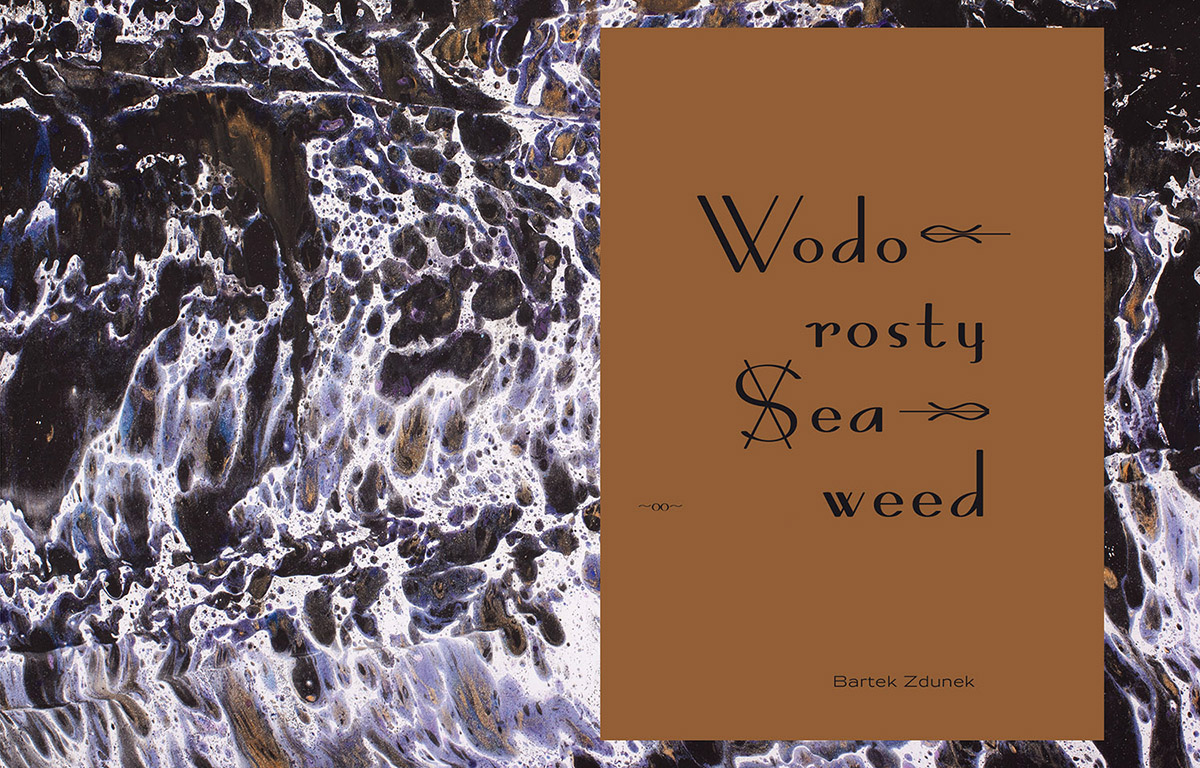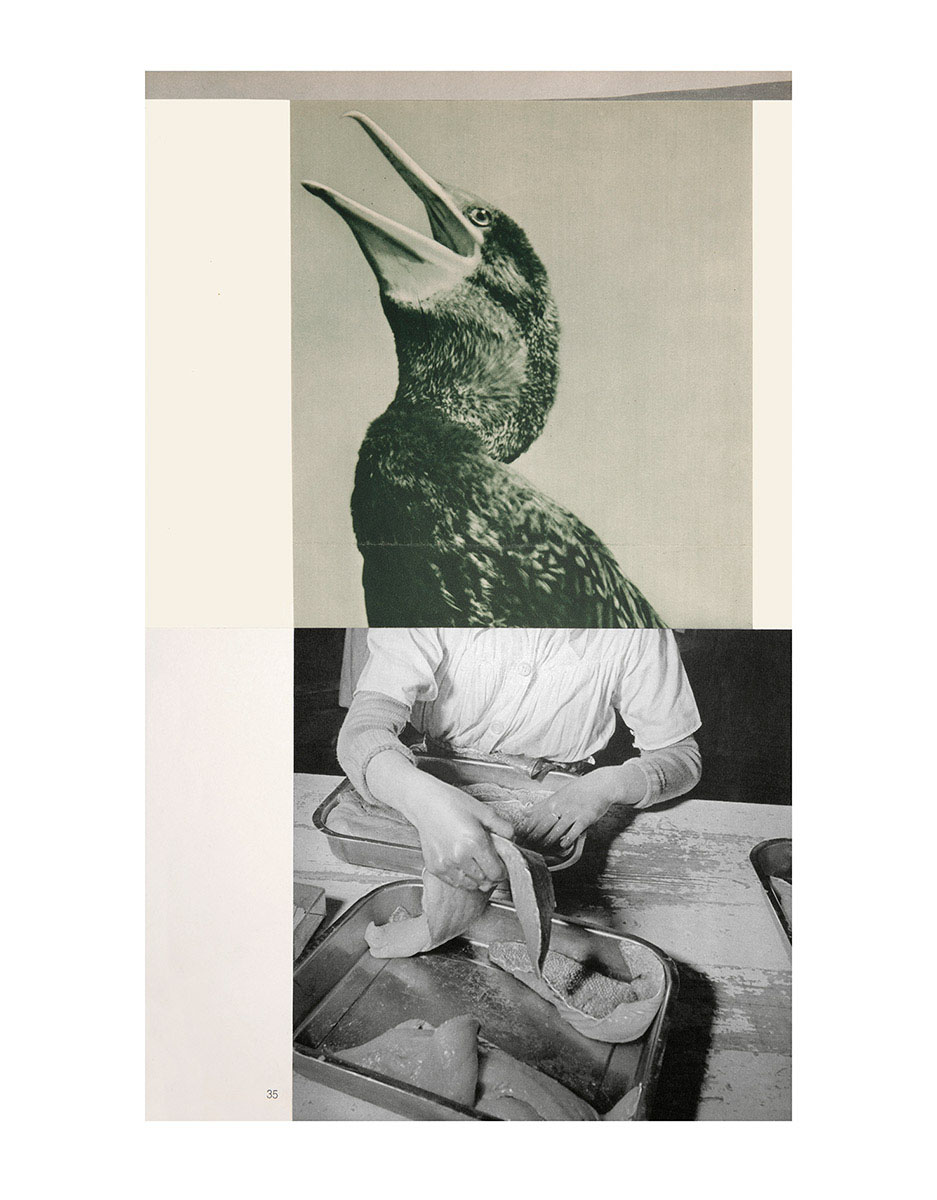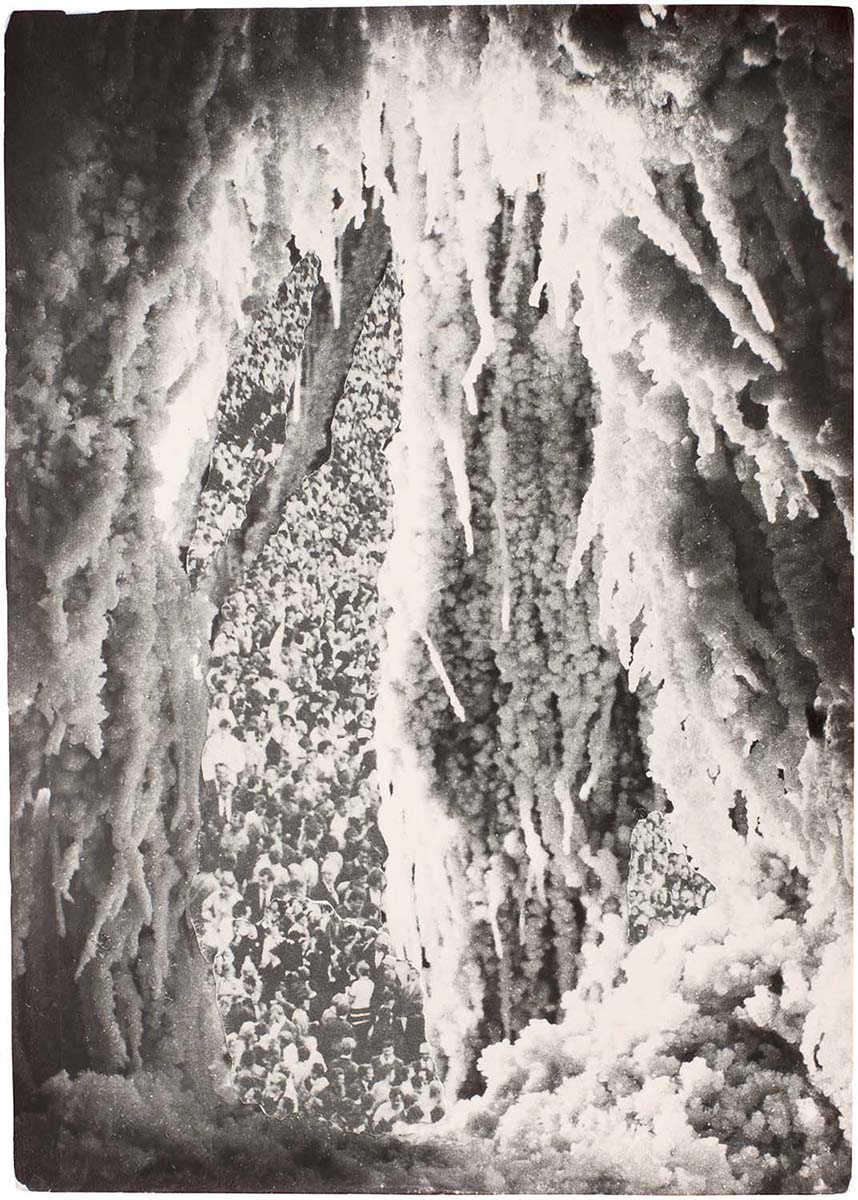“DEADLINE. Never Ending Story”
artbook | inkjet print on cotton paper | format 25 × 32 cm | edition 4 + 2 AP
2012This artwork, which previously had taken the form of installation, alternately has become a multiplication and reduction of elements in order to ultimately take the initially intended form of the book. The book closes the final stage of work on the subject. Previously divided parts, scattered pages from a library were closed in one piece, where layer upon layer create new narratives. It is the story of the sea, which throws ashore its remains; about The Oceanworld—without a beginning or an end—the constantly overflowing living substance; about the ongoing spectacle, which does not require the audience and also about the sadness of entropy, melting glaciers, oceans rising and wave illusion. In the background of the ongoing stories we can see abstract images arising from a mixture of water, oil and paints. This is polluted foamy sea wave in perpetual motion of its inflows and outflows. In the foreground mini narratives close themselves in collages, spanning between possibility and reality, logic of an order and an accidental meeting, drama of disintegration and fleeting sentiment.
The work, which is inherently connected with constant change in its structure, at this stage still has a lot of empty pages which will be filled one day. But for now blank sheets remain in their passive standby and inertia. It is difficult to predict at this time what this book will be after some time, maybe become a book about time exactly or just a dead form of uncertainty, doubt and confusion—a swollen proof of compulsive cumulation of images. In any case, leaving it forever infinite—in the continuous process of transformation—losing partly some control over it by putting it in other hands and minds, the author gives it the shape of the water in the vessel or rather the vessel of water. Aware of the inevitable end she tries to postpone it as far as it is possible.
Agnieszka Taborska begins her text The Sea, or the Poet at Work from throwing out clusters of words like dead remains, and later proceeds fluently to a fascination with a water substance, which prepossessed the surrealists. She extracts funny anecdotes from the whirlpool of history and the subconscious. Literary collage of Agnieszka Taborska was inspired by ‘inventories’ of Georges Perec, surreal variations on the topic of water or her own experience of life by the ocean. Oneiric rhythm of poetic prose conducts a dialogue with the mosaic narration of collages.
In the text under the title A Fragment of a Whole Agnieszka Pindera takes on the consideration of the technique of collage as a specific method of work, which assumes collecting and selecting the elementary material each time before the actual realization. This process reminds the author of dance improvisation or constructing a music piece for tape, which also base on a finite number of components subjected to composition exercises. On the basis of this intuition there are compiled a fictional narrative around Patrycja Orzechowska’s ‘pieces’.
Initially Jonas Nobel’s text Display of Loss—This Play we Lost had been one of the part of his installation which he showed in 2010 in Gallery Charlotte Lund in Stockholm. Now it has also become a part of this book. The story depicts a crew of a shipwrecked boat. Before the accident they had been trying to sell their cargo, however without success. But no one seemed to need the products they were shipping. When the crew finds themselves shipwrecked on the island they use it as a way of getting away from the society. The cargo from the ship floats to shore but all the stuff is useless for them. Then they pile all the products and visit the pile as some sort of a temple of remembrance of their former life. The title serves as a metaphor of market economy where demand is created by marketing strategies. Strategies which often mean that more effort is needed in order to display the products than to produce them. Something has got lost and the only thing remaining is to play the game as if nothing had happened.
The title of the text by Katarzyna Czeczot—She said she sees a sea snail, when she sings is a quote from the Fellini’s movie And the Ship Sails On. It refers to a deceased soprano singer, whose ashes are to be scattered around her native island. Fellini’s film, the legends of mermaids, the opera of Juliana Snapper and—of course—the description of Ophelia’s death are just some examples of stories a strange relationship between water, death and singing.
In Seaweed, the poet Bartek Zdunek spins a multi-threaded and digressive tale of a separation immersed in a seascape, of the end of one’s own world. His thick, gloomy words wind like seaweed, sometimes causing a pleasant tickle, other times they tighten disturbingly around the limbs. Sometimes they intertwine with the sentences of Sebald and Joyce. In them, he evokes the last warm, lazy day just before the end—a temporarily suspended global acceleration.
Homo bulla by Stanisław Ruksza treats the connections between water and death perhaps most literally of all the essays included. In the text full of erudition, the author cites numerous anthropological and cultural references, and at the end, in full sunlight, stands on the top of Barcelona’s Montjüic hill, where underfoot there is a view of the largest necropolis in Europe with the Mediterranean Sea in the background. He writes: Life on the verge of a big water can pose a serious risk, just as life at the foot of a volcano or in the face of a high wind does. Hence the symptomatic distrust of authorities—both centralist and absolutist, but also democratic ones—of their seaside cities exposed to constant exchange and influences.
Text by P_O / A_T / A_P / J_N / K_C / B_Z / S_R
—
to be continued…


